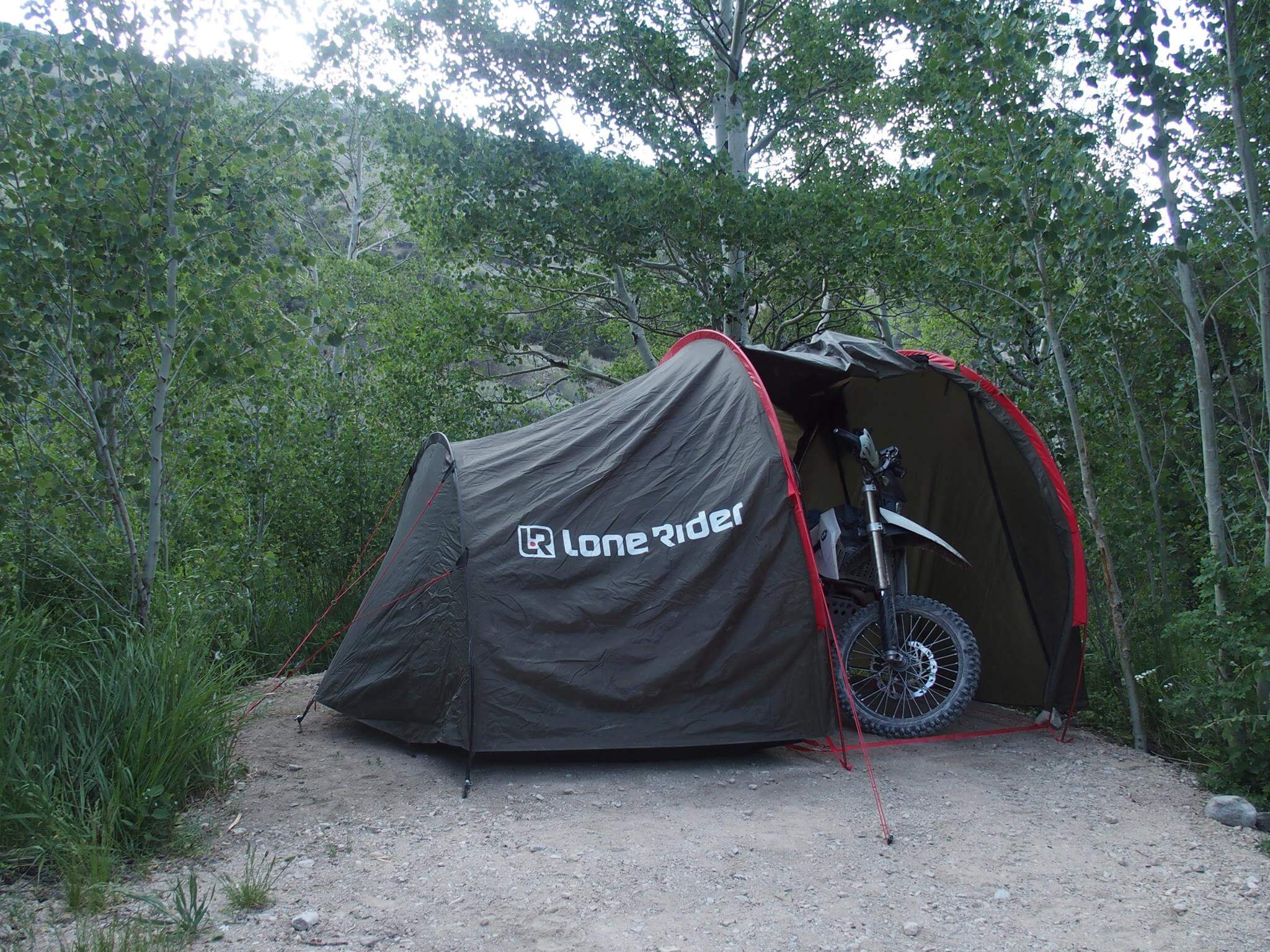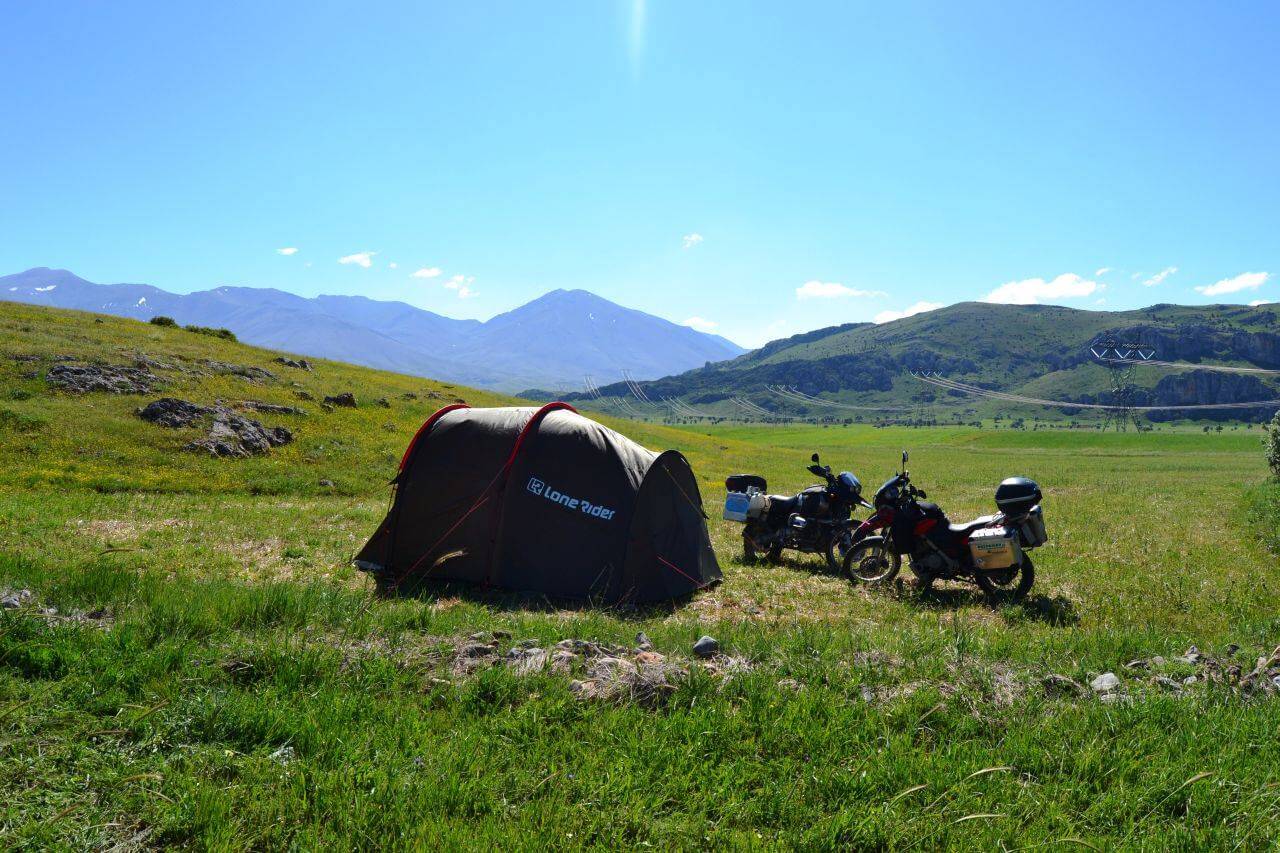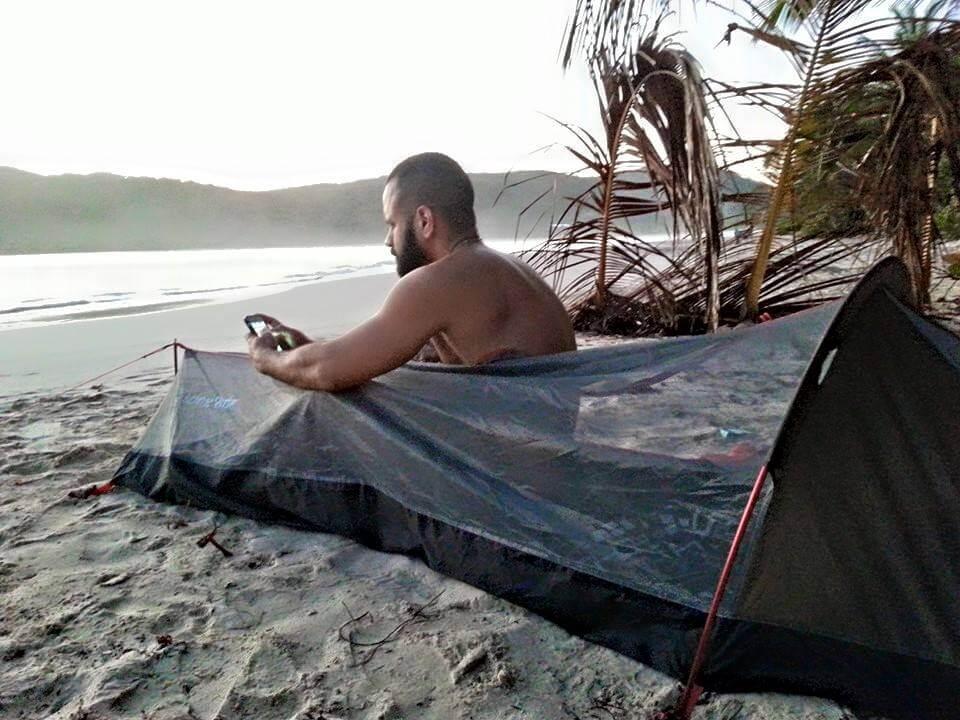Safety on the ADV Trail: What You Need to Know and Have

As we set sail past the static copse and tour the trails that our ancestors laid down before us, our search does not lead us to any destination in particular. For we are the modern trailblazers who live without presentiment or a purpose other than our own desire to be free.
Our only search is for a warm place to sleep so we can get back on our bikes again and feel the power of the wind as it grasps at our skin. We don't need to go to Walden Pond or the Arctic Circle to find ourselves or be free; only a set of wheels and a willingness to drive.
The open trail is often unforgiving and if you ask any motorcyclists about it they’ll probably have a story or two tell. It’s important to always be prepared before you embark on the trail.
No one plans on getting into an accident or even getting lost, but at least you can be prepared. Here are a few cheap supplies and free advice to remember for your next outback adventure.
Backup Ride Supplies
Sometimes we are not always the most concerned with our safety and that even goes for the motorcycle ride itself. In terms of taking a weeklong ride across the country or a few days for camping and off-roading, it pays to have a spare tire. If you ask any motorcyclists out there, the number one problem they run into on the trail is a deflated or flat tire.
In case you run over some sharp brush or the cold night lets some air out of your tire be sure to bring a spare tube, patch kit, and a small air compressor. It’s also a good idea to have an extra tow strap in case your bike can’t make it home.

Always check your bike each night on the trail before you go out, including air pressure, brakes, etc. Some essential backup supplies to bring include:
- Brake levers
- Spark plugs
- Sprockets
- Clutch plates
- Headlamp bulbs
- Batteries (if you own a keyless fob ignition)
Of course, you should never forget about basic tools as well, including wrenches, screwdrivers, pliers, etc. There are plenty of all-in-one compact tool kits that will fit neatly into your backpack or luggage.
The Essentials
Food and water seem fairly obvious to bring on a long-distance trip, but it’s safer to carry a 40oz water bottle and water desalinator if you’re off-roading. Cooking supplies are a must, as well as dehydrated or nonperishable foods that will fit into your bag.
Be sure to carry foods, such as fruits, potatoes, etc. that will maintain a proper source of nutrition. You could always eat canned beans, but by the fourth day on the road you’ll definitely be feeling it and your body will not really be up for much of an adventure anymore.
I always suggest bringing a basic survival kit for off-road motorcycling. This should include waterproof lighters, a flashlight, first-aid materials, and a knife. Maybe my number one advice is don't forget the sunscreen, because it’s probably the most neglected. Oh yeah, you’ll also need to bring some toiletries.

The most important item of all will be your GPS system. Not only do GPS systems navigate your toward help, but they could also be used to call for help in emergency situations. GPS messenger systems, such as SPOT, allow you to make emergency calls for help and allow rescuers to pinpoint your last known location. I can’t stress the importance enough; it could literally save your life. It’s important that you have your medical ID, insurance card, and photo ID on you in case of such an emergency.
In terms of clothing, be sure to bring some rain gear so you don't catch hypothermia during cold weather. Cotton works well for insulation, but cotton ceases to provide insulation when it gets wet. Hiking boots will also be a lifesaver if you find yourself walking your bike through mud, snow, or other precipitous conditions.
First Aid Tips
First aid kits are the most important item to bring on any motorcycle excursion. Antiseptics and antibacterial ointment also become critical in the woods where bruises and scratches can easily become infected.
Essentials include:
- Ibuprofen for pain relief and swelling
- Butterfly bandages
- Gauze pads
- Cotton balls
- Insect and bug repellent
- Neosporin
- Safety pins
- Tweezers for splinters
- Isopropyl alcohol
- Sterile pads
- Adhesive medical tape
You should also carefully consider any medication you will need, such as antihistamines if you have allergies or antacids for heartburn relief.
Be sure to tend to any injuries you sustain on the trail immediately. If need be, stay behind and massage out any pain you have and properly sterilize any cuts or wounds you have. If you have a serious injury immediately signal for help using your GPS messenger or satellite phone. Do not try and ride back with a sustained injury; you could put yourself at a greater risk of accident while driving.
Trail Tips
Remember, you are not a welcome guest on the trail. It’s recommended to travel with someone in case of an accident, but if not, try to tell somebody where your location will be.

Avoid off-roading at night as this is incredibly dangerous and it’s much harder for rescuers to find someone at night than during the day. Avoid animals as well; they tend to get bigger and less amicable the deeper you go into the woods (e.g. their territory).
Final Thoughts
We often wonder what stories our ancestors or the people who traveled across these paths had to tell. In a way, we get to share in them by riding the same trails they did and adventuring through the same unknown. Fortunately, with the right supplies and precautions, we can make it home to tell our stories of the trail, unlike some of the people who crossed them before us.

